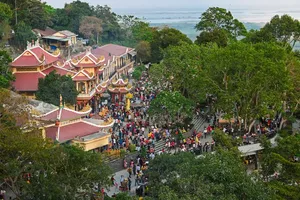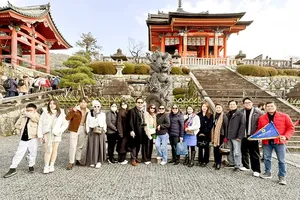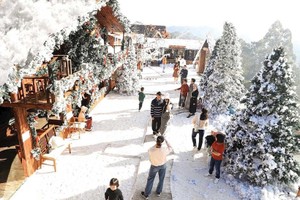
International visitors in Vietnam
The award presentation ceremony recently took place in Dubai. Together with the title obtained in 2019, 2020, and 2022, this time’s award shows the globally outstanding values and attractiveness of the country’s cultural heritage to the international community, the authority said. Several destinations of Vietnam were also granted different awards this year.
Among them, Hanoi won the World’s Leading City Break Destination title while Phu Quoc in the Mekong Delta province of Kien Giang was named the World’s Leading Nature Island Destination.
Moc Chau in the northwestern province of Son La was listed as the World’s Leading Regional Nature Destination, Ha Nam province the World’s Leading Regional Cultural Destination, and Tam Dao in the northern province of Vinh Phuc the World’s Leading Town Destination.
The World’s Leading Heritage Destination title will continue to affirm Vietnam’s potential and attractiveness in terms of natural resources and long-standing cultural heritage values. It will help further popularise the country’s tourism images to the international community and also demonstrate local people’s efforts in preserving and promoting heritage values, according to the VNAT.
VNAT Deputy Director Ha Van Sieu said cultural heritage is a tourism resource with great attractiveness to travelers, especially international ones.
The tourism sector views cultural heritage as an important pillar of tourism development and the building of Vietnam’s tourism brand. Heritage-based tourism in many places like Hue, Hoi An, Ha Long, Trang An, and Hanoi has created jobs and income for many locals while promoting mutual understanding, respect for cultural diversity, and cultural confluence.
Part of the revenue from this type of tourism has been used for heritage preservation, restoration, honouring, and management. Heritage tourism has substantially contributed to the preservation and sustainable exploitation of cultural heritage, he added.
























